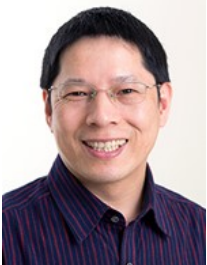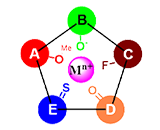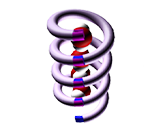Prof. Huaqiang Zeng
College of Chemistry
Fuzhou University
Fuzhou, Fujian 350116, China
Email: hqzeng@fzu.edu.cn
Google Scholar:
https://0-scholar-google-com.brum.beds.ac.uk/citations?user=4DzjlW0AAAAJ&hl=zh-CN
Professional experience
2022-present: Professor, College of Chemistry, Fuzhou University
2021-2022: Professor, Northwestern Polytechnical University
2019-2020: Team Leader and Principal Research Scientist, NanoBio Lab (NBL), Singapore
2014-2018: Team Leader and Principal Research Scientist, Institute of Bioengineering and Nanotechnology (IBN)
2006-2014: Assistant Professor of Chemistry with a joint appointment in MedChem Programme at National University of Singapore (NUS)
2002-2006: Postdoctoral Fellow, The Scripps Research Institute, California, USA
2000-2002: Ph.D., The State University of New York at Buffalo, New York, USA
1997-2000: Ph.D. Candidate, The University of Toledo, Ohio, USA
1991-1996: B.S., The University of Science & Technology of China, Hefei, Anhui, PRC.
Research interests
We have long-standing interests on developing artificial versions of channel proteins, that is, artificial transmembrane transporters to simplify the complex structure of natural counterparts while mimicking and diversifying their functions for important applications at the interface of chemistry, materials and biology, including but not limited to seawater desalination, third-generation single-molecule gene sequencing technology and anti-cancer drug development.
·Supramolecular Organic Chemistry ·Foldamers ·Synthetic Ion/Water Channels
·Nanochannels for DNA Transport and Sequencing ·Channel-Based Anticancer Agents
·Water Channel-Based Membrane for Water Desalination and Purification
-
Hybrid Pyridine–Pyridone Foldamer Channels as M2-Like Artificial Proton ChannelsJie Shen, Ruijuan Ye, Zhiwei Liu, and Huaqiang Zeng*See the publication
-
Foldamer-based ultrapermeable and highly selective artificial water channels that exclude protonsArundhati Roy *1,2,8, Jie Shen*1,8, Huaqiang Zeng *1,7 et al.See the publication




